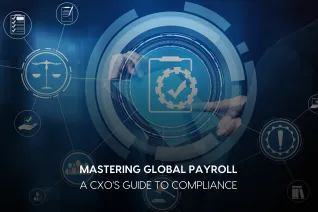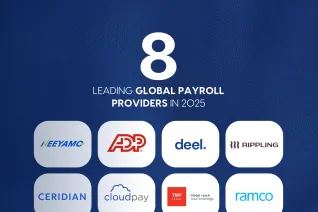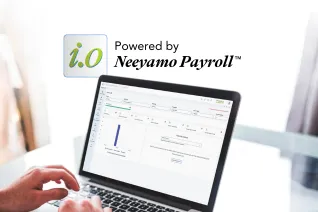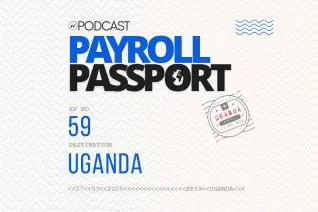Country Spotlight: Payroll in Nigeria

Ever heard of a place where every household has a minimum of one pair of twins? Well, now you have! The city of Igbo-Ora in Nigeria is said to have one of the highest populations of twins, with a twinning rate of 45 twins for every 1000 live births, which is much higher than the average of 12 to 100. This isn't the only thing Nigeria has in abundance. The country also possesses a wealth of skilled and talented individuals, making it a talent hub for those looking to hire globally.
However, navigating the exciting world of Nigerian business comes with its own set of rules, especially when it comes to payroll. Payroll compliance in Nigeria is a tricky path to manouevre, with mistakes ending in hefty fines; some compliance complications to look out for are:
Caution with Compliance:
Value Added Tax (VAT): Businesses exceeding a specific turnover threshold must register for VAT, collect it on taxable sales, and remit it to the government by the 21st of the following month. Failing to comply can result in penalties and interest charges.
Withholding Tax & Remittance: Withholding various taxes from employee salaries is crucial. A global payroll provider, like Neeyamo, calculates the correct rates based on income brackets and ensures timely remittances to the authorities, minimizing errors and penalties. Automating these processes with the help of a compliance tracking solution minimizes the risk of errors and fines for late payments.
Pension Contributions: Companies with over 15 employees are mandated to provide a contributory pension scheme. The minimum contribution is 18% of the monthly wage, split between employer (10%) and employee (8%). In a situation where the employer decides to bear the total contribution, the minimum contribution increases to 20% of the monthly wage.
Pay-As-You-Earn (PAYE) Returns: Employers deduct PAYE tax from employee salaries and file returns with the state tax authority. These returns detail employee income, withheld employee tax, and other relevant employee information. Filing deadlines for returns typically fall monthly and vary from state to state. Failure to pay taxes and comply with these requirements may lead to fines for the employer imposed by the Revenue Service. With the help of a global payroll provider, the burden of all these complications is taken over by the provider, allowing the employer to sit back and relax.
*Employees as well as business entities are issued a Tax Identification Number or TIN which is used to track tax obligations and payments that they make to the Internal Revenue Service.
ALSO READ I Nigeria: A Guideline to Payroll and Employer of Record
Beyond just the Buck:
The minimum wage in Nigeria is set by the government and is constantly updated to align with the change in cost of living and inflammatory adjustments. The minimum wage is currently set at 30,000 Nigerian Naira but can be subject to frequent changes.
With the ongoing labor market reforms in Nigeria, it is important to stay updated and informed about all the changes happening within the country, including those related to employment contracts, but a global employer might find it difficult to keep tabs on changes in all countries; to tackle this, employers can use the help of a Global Payroll provider to ensure that all changes and updates are accounted for.
Time on your Terms:
The Nigerian Labour Act does not highlight specific working hours and may vary slightly from company to company. The most common working hours though are 8 hours per day and five working days - resulting in a 40-hour work week
Overtime
There are also no specific provisions for overtime pay, but companies must highlight pay in the employment contracts prior to employment.
YOU MAY ALSO LIKE I Cutting Through the Clutter: Streamlining your HR Tech stack
Does taxing take a Toll?
Nigeria's progressive income tax, which ranges from 7% to 24%, demands attention for payroll compliance. Here's a quick run-through of the more complicated aspects:
- Exemptions & Brackets: Using a Global payroll system ensures proper employee classification for tax exemptions and automates calculations based on current brackets.
- Taxable Income: They identify taxable income components (salary, benefits) and deductions (social security contributions) for accurate tax calculations, such as towards the national health insurance scheme, which has its own criteria based on wages and the number of children the employee has.
- Residency & Taxes: Their expertise minimizes compliance risks by classifying employees (resident/non-resident) and applying the right tax rules. For contributions to the National Housing Fund or NHF, employers are required to register employees with the NHF and deduct 2.5% of the employee’s monthly wages to remit to the Federal Mortgage Bank of Nigeria within a month.
Partnering with a global payroll provider streamlines Nigerian personal income tax management, freeing you to focus on your business.
Leaves got you Lagging?
Nigerian leave laws are known to complex and are difficult to navigate through, such as:
- Vacation Entitlement: For employees in Nigeria, annual leaves have a 2-year window, requiring constant tracking and approval for carry-over. Employees are allowed a minimum of 6 days, and additional days vary based on the length of service and type of employment.
- Sick Leave: Employees are entitled to 12 days of sick leave and the medical certificate is required to be submitted within 2 days. Employers hiring globally may struggle to keep up with sick leave and the pay that follows, using an absence tracking solution will aid employees in ensuring that their sick leave is tracked and accounted for and that it leaves no room for incorrect salary calculations.
- Maternity Leave: Female employees in Nigeria are entitled to 12 weeks of paid maternity leave, 6 weeks taken before birth, and six weeks after. Employers must pay a minimum of 50% of the regular salary. The employee must also fulfill certain criteria requirements to be eligible for maternity leave and maternity pay.
Navigating the intricacies of Nigerian payroll management can be a significantly overwhelming process for any employer. From withholding tax to state-specific PAYE returns, each regulation comes with strict deadlines and hefty penalties for non-compliance. Managing these complexities in-house diverts valuable resources from your core business and exposes you to potential errors.
Partnering with a global payroll provider like Neeyamo simplifies this process. Neeyamo’s expertise ensures accurate tax calculations, timely remittances, and compliant filings, giving you peace of mind and a weight off your shoulders.
To make things even easier, Neeyamo offers employers a Global Tech Stack solution - a comprehensive package, encompassing both Employer of Record (EOR) services and payroll processing, empowering you to expand your workforce internationally with no hesitations.
To discover the potential of your global workforce, contact us at irene.jones@neeyamo.com.
Latest Resources
Stay informed with latest updates
If you're curious and have a thirst for knowledge pertaining to the HR, payroll, and EOR universe, don't miss out on subscribing to our resources.
















